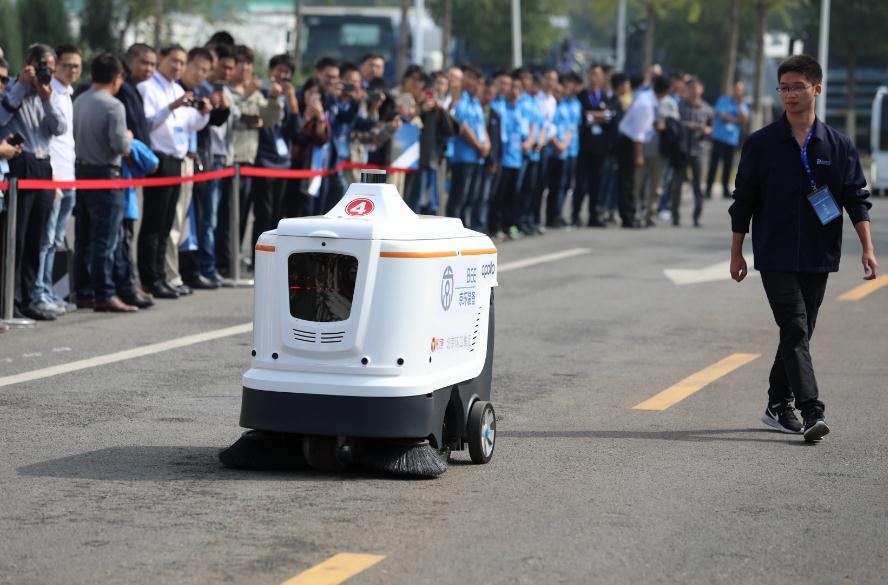Autonomous service vehicles gaining ground


Broad support
China's autonomous driving is gaining momentum as the government has high hopes for the sector.
The authorities forecast that vehicles with some degree of autonomous functionality will account for half the new vehicles sold in the nation by 2020, according to a guideline released by the National Development and Reform Commission.
To ensure the rapid development of autonomous vehicles, the Chinese authorities have been expediting such guidelines and related regulations.
Local authorities in Beijing released the country's first guideline on road tests of autonomous vehicles in December 2017, and unveiled a closed testing ground in February last year.
On March 1, authorities in Shanghai issued the country's first road test licenses to two smart carmakers, SAIC Motor Corp and electric vehicle startup Nio.
In April, the nation released a national guideline on road tests for self-driving vehicles, as part of a broader drive to accelerate the development of the technology and gain the advantage in commercializing such vehicles.
The regulation allows local authorities to evaluate local conditions and arrange road tests for autonomous vehicles. It states that the test vehicles should be passenger or commercial automobiles, not low-speed vehicles or motorcycles.
Shanghai has issued seven license plates for five companies to conduct self-driving road tests, namely SAIC, Nio, BMW, TuSimple and Momenta. Two of the five companies have been given a plate for testing autonomous driving trucks.
Apart from Beijing and Shanghai, extensive testing is also taking place in a total of 14 cities around China, including Shenzhen and Guangzhou in Guangdong province, Hangzhou in Zhejiang province, and Chongqing.
According to consultancy Roland Berger, China is accelerating its development of autonomous driving and is expected to become the leader in the technology, which is seen as key to the future of the automotive industry.
However, industry analysts said there is a long way to go before fully autonomous cars are integrated into people's daily lives.
"More tests are needed before such vehicles can reach mass production and enter large-scale commercial application, because of widespread safety concerns," said Zeng Zhiling of LMC Automotive Consulting.
Zeng warned that self-driving vehicles are vulnerable to cyberattacks. Since these vehicles are highly intelligent and networked, there is a possibility that hackers could break into the system and pose a great danger to road safety, he explained.
Zhao Xiang, an analyst with internet consultancy Analysys, said self-driving technologies still face a number of obstacles before being rolled out for commercial use.
She said technological hurdles include the accuracy of digital maps and the high cost of laser sensors used in the self-driving systems.
"Intelligent vehicles with fully autonomous functions may account for 10 percent of the new vehicles in 2020," said Yang Diange, dean of the Automobile Engineering Department at Tsinghua University, estimating that "self-driving vehicles will come into our daily lives in 2030."




































